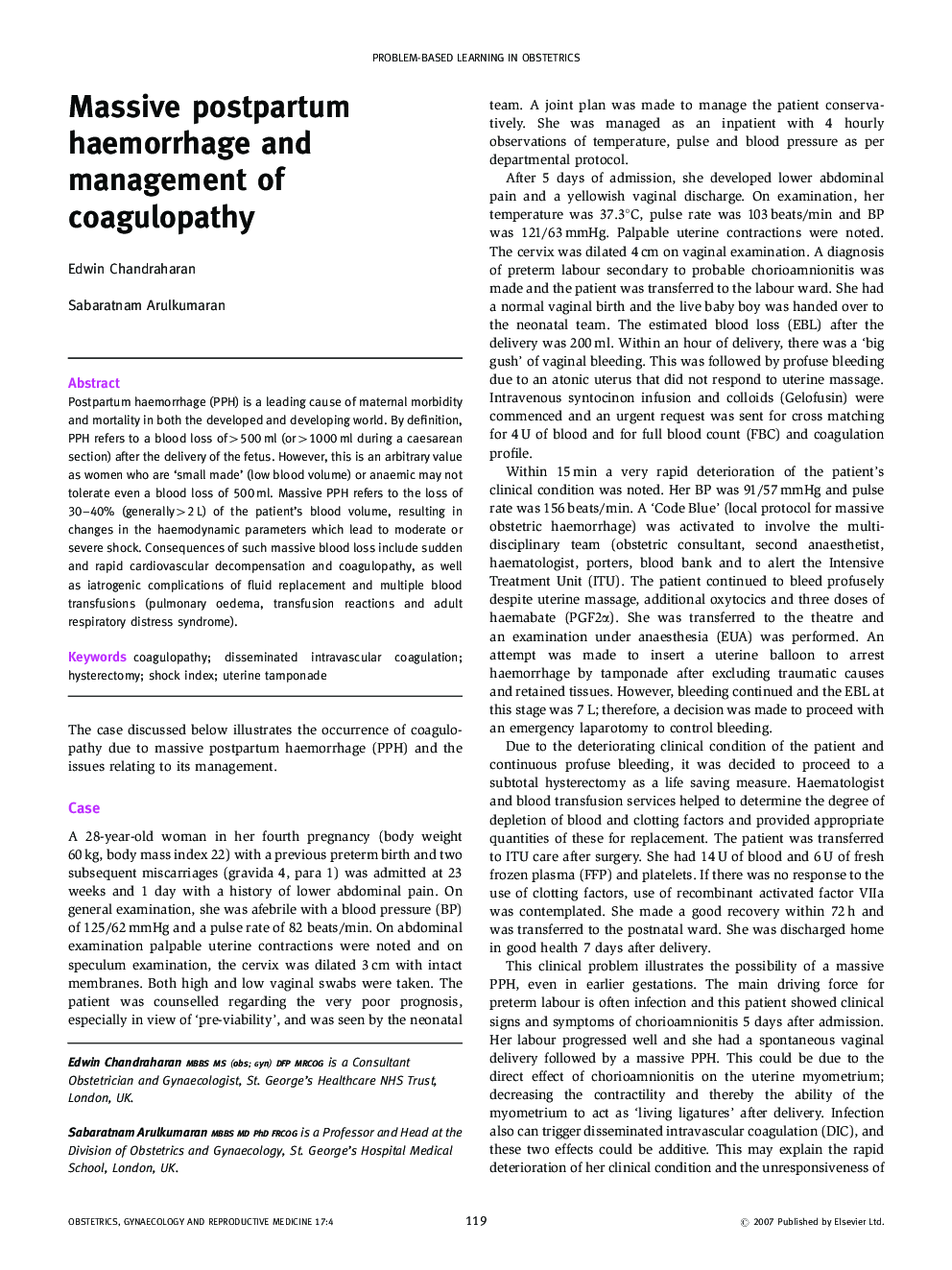| Article ID | Journal | Published Year | Pages | File Type |
|---|---|---|---|---|
| 3967473 | Obstetrics, Gynaecology & Reproductive Medicine | 2007 | 4 Pages |
Postpartum haemorrhage (PPH) is a leading cause of maternal morbidity and mortality in both the developed and developing world. By definition, PPH refers to a blood loss of>500 ml (or>1000 ml during a caesarean section) after the delivery of the fetus. However, this is an arbitrary value as women who are ‘small made’ (low blood volume) or anaemic may not tolerate even a blood loss of 500 ml. Massive PPH refers to the loss of 30–40% (generally>2 L) of the patient's blood volume, resulting in changes in the haemodynamic parameters which lead to moderate or severe shock. Consequences of such massive blood loss include sudden and rapid cardiovascular decompensation and coagulopathy, as well as iatrogenic complications of fluid replacement and multiple blood transfusions (pulmonary oedema, transfusion reactions and adult respiratory distress syndrome).
